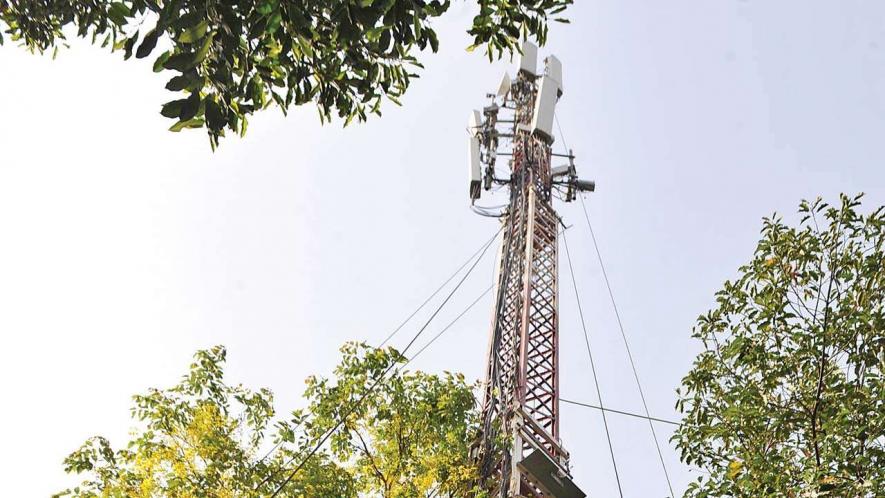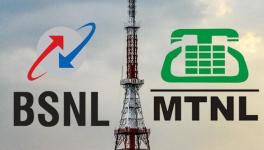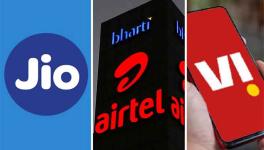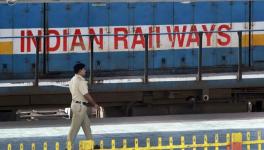Govt ‘Favouring’ Private Telcos, ‘Ignoring’ BSNL: Trade Unions

Kolkata: The Azadi Ka Amrit Mahotsav celebrations turned out be a non-event for the Bharat Sanchar Nigam Limited (BSNL) staff. Around 10-12 weeks before Independence Day, the Sanchar Bhawan indicated that Prime Minister Narendra Modi could announce a date for the launch of BSNL’s much-delayed 4G services during his I-Day address to the nation.
Subsequently, however, another story was doing the rounds: Modi might only announce a token launch from either Chandigarh or Ambala, where public sector technology firm Centre for Development of Telematics (C-DOT) was testing its core network with the radio equipment of Tejas Networks Limited and other software components of Tata Consultancy Services (TCS).
Together, Tejas—a part of the TCS Group outfit—TCS and C-DOT “have been entrusted the responsibility by BSNL” for executing its 4G entry as a symbol of Modi’s Atmanirbhar Bharat drive and facilitating the graduation into 5G in due course. Though this information is in the public domain, the intriguing official silence on the role of the three companies continues. The three companies themselves are also mum.
The optimism of BSNL employees about the launch of 4G services can partly be traced to the Union Cabinet’s announcement of Rs 1.64 lakh crore revival package for the beleaguered telecom service provider (TSP) on July 27. In the media briefing the same day, Union minister for communications Ashwini Vaishnaw went to the extent of predicting the telco’s return to profit by 2026-27 on execution of the four-year rescue package but was silent on when allotment of 4G spectrum and the timeline for its launch.
However, a leaked audio of Vaishnaw’s first meeting with senior BSNL senior executives on August 4 revealed the minister warning the employees of voluntary retirement if they don’t’ perform. “I will be measuring the performance every month. Those who don’t want to work can take voluntary retirement and go home. Or you will be made to take voluntary retirement—like what happened in the Railways,” he was heard saying in the clip.
Warning the employees that “this is going to be the new normal from now on”, Vaishnaw further warned, “Perform or perish. Only your performance can save you in this competitive industry. I want to see the results in the next 24 months. I will see monthly report on your performance.”
According to sources, Vaishnaw’s sudden warning has anguished and demoralised the BSNL employees. He blamed the employees for the telco’s present condition while not arranging for the spectrum and equipment needed for the launch of 4G services.
On August 18, Vaishnaw announced on Twitter and Koo that 5G spectrum assignment letters had been issued to TSPs. “5G update: Spectrum assignment letter issued. Requesting TSPs to prepare for 5G launch,” he tweeted.
https://twitter.com/AshwiniVaishnaw/status/1560126664805613569
Further, The Economic Times had reported on August 15 that the department of telecommunications (DoT) has started to unlock and sell an additional 5,500 MHz of 5G spectrum worth more than Rs 35,000 crore. A strategy to incorporate 37.0-42.5 GHz as international mobile telecommunications (IMT) bands will be worked out by DoT’s internal committee, which will help in offering 5G fixed wireless access service.
This will be another avenue for growth of private TSPs, trade unions alleged. All Unions and Associations of BSNL (AUAB) chairman Chandeshwar Singh, Bharatiya Mazdoor Sangh national executive member SVS Subrahmanyam and BSNL Employees Union general secretary P Abhimanyu alleged that Vaishnaw is being “unfair” to the employees.
“Some disgusted and angry employees feel that they were much better off in DoT,” said Singh. Subrahmanyam informed that “only some time back, our men erected a mobile tower at a widely visited temple at Saharanpur, UP, in just 20 days. The minister does not make note of such achievements. Our men provide services in extremist-infested areas and sensitive areas of the Northeast and also play a key role in defence communications”.
Further mentioning the importance of BSNL, Singh said, “BSNL was asked in 2018 to implement the Network for Spectrum project, under which as a reciprocal gesture for release of spectrum held by the armed forces, the Centre had increased the allocation of funds for laying alternate communication network for the defence sector. Our engineers have often to spend a part of their salaries to keep the system going. They know that they will have to wait indefinitely for reimbursement if at all made by the company.”
Abhimanyu said that “we will have no inhibition if we are asked to work with indigenously developed but proven technology”. But the government is “allowing private TSPs to import commercially proven technology and asking us to work with untested domestically developed technology”, he alleged. “Records will show how many times BSNL has been prevented from procuring equipment for 4G and upgradation of the existing network of base transceiver stations,” he further alleged.
“If roadblocks were not created, the company could have begun 4G services, at least, two years ago. The biggest damage to BSNL’s prospects was caused during the UPA regime by telecom minister A Raja,” Subrahmanyam alleged pointing out that “wage revision has been pending since 2017”.
For the record, the second rescue package of Rs 1.64 lakh crore has a cash component of Rs 43,964 crore and a non-cash component of Rs 1.2 lakh crore. A purpose-wise break-up is given below:
*Administrative allocation of spectrum in 900/1,800 MHz band at a cost of Rs 44,993 crore through equity infusion
*Capex support of Rs 22,471 crore over the next four years to boost development and deployment of Atmanirbhar 4G stack
*Rs 13,789 crore to be provided as viability gap funding for commercially unviable rural wireline operation undertaken between 2014-15 and 2019-20 as part of the Centre’s social objectives
*To distress the company’s balance sheet, its statutory adjusted gross revenue dues (spectrum usage charges and licence fees) of Rs 33,404 crore will be settled by conversion into equity
*Balance sheet distressing action plan also includes providing sovereign guarantee for Rs 40,399 crore the company will raise by issuing long-term bonds to repay high-cost debt
*Company to reissue preference shares of Rs 7,500 crore to the Union government
*Bharat Broadband Network Ltd, initially DoT’s SPV for incremental laying of optical fibre in gram panchayat areas and later converted into a PSU, is to be merged into BSNL [Scheme originally called National Optical Fibre Network and later rechristened BharatNet]
*The company’s authorised capital is to be raised to Rs 1.5 lakh crore in lieu of dues, capex and allotment of spectrum.
Vaishnaw told the media on July 27 that in the government’s reckoning, BSNL would emerge as a profit-earning entity in 2026-27 as these measures get executed in a pre-determined timeframe. [Rescue package I was granted on October 23, 2019, when the ministry was headed by Ravi Shankar Prasad. The bulk of the funds was meant for implementing the country’s most sweeping VRS which saw the exit of more than 92,000 employees—78,000-plus from BSNL and the rest from MTNL on January 31, 2020—in one go. To leave no scope for any recruitment in their place, the DoT simultaneously abolished the posts.
The writer is an independent journalist. Views expressed are personal
Get the latest reports & analysis with people's perspective on Protests, movements & deep analytical videos, discussions of the current affairs in your Telegram app. Subscribe to NewsClick's Telegram channel & get Real-Time updates on stories, as they get published on our website.
























